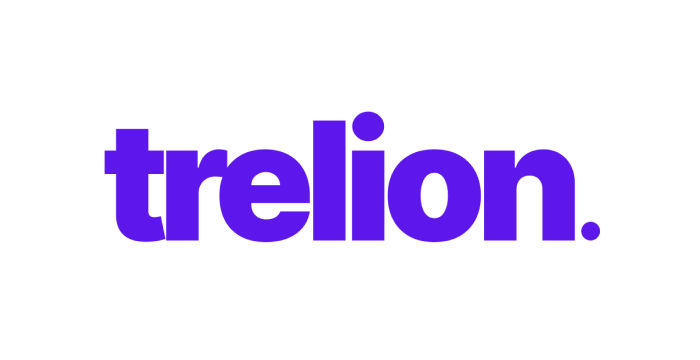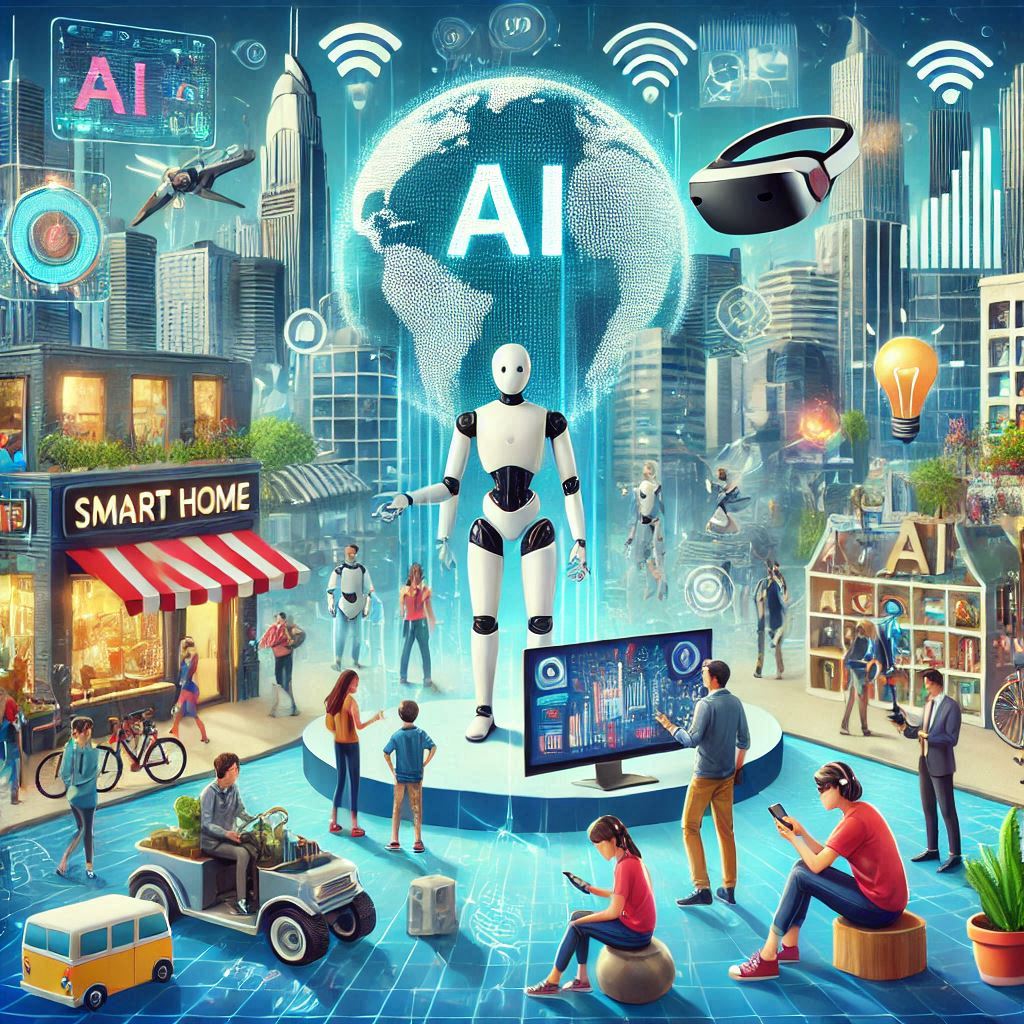In the ever-evolving world of artificial intelligence (AI), businesses are steadily embracing intelligent workflows to enhance efficiency, decision-making, and employee engagement. As we look ahead to 2025, AI will continue to redefine the way organizations operate, optimizing everything from supply chains to customer interactions. This article explores the most significant AI trends to watch in 2025, focusing on the future of intelligent workflows and how businesses can stay ahead of the curve by leveraging the latest advancements in AI technology.
What Are Intelligent Workflows?
Intelligent workflows refer to the automation and optimization of business processes through advanced technologies like AI. By integrating machine learning, natural language processing, and robotic process automation, businesses can create smarter workflows that streamline tasks, reduce human error, and increase productivity.
Key AI Trends Shaping Workflows in 2025
In the coming years will bring numerous AI advancements that will have a profound impact on how businesses handle their workflows. From hyper-automation to personalized AI systems, organizations will need to stay current with these trends to maintain a competitive edge.
What is Hyperautomation?
Hyperautomation is the practice of automating as many business processes as possible through the use of AI, machine learning, and robotic process automation (RPA). Unlike traditional automation, which focuses on repetitive, rule-based tasks, hyperautomation aims to automate complex, decision-based processes, such as customer service or financial analysis.
AI’s Role in Automating Complex Tasks
AI will be at the heart of hyper automation, enabling businesses to automate tasks that require human intelligence, such as document processing, data extraction, and predictive analytics. These AI-powered solutions can process vast amounts of data in real-time, making decisions faster and more accurately than humans.
Benefits of Hyperautomation for Businesses
- Cost Efficiency: By automating labour-intensive tasks, businesses can significantly reduce operational costs.
- Improved Accuracy and Speed: AI can process information with precision and speed, eliminating human errors and improving workflow efficiency.
Challenges in Adopting Hyperautomation
- Overcoming Resistance to Change: Some employees may be resistant to hyper automation, fearing job displacement or a lack of control. Companies must invest in training and communication to ease this transition.
- Integration with Existing Systems: Implementing hyper-automation requires seamless integration with legacy systems, which can be complex and time-consuming.
AI and the Future of Decision-Making
AI in Data-Driven Decisions
AI has already begun to play a major role in business decision-making. By analyzing vast amounts of data, AI systems can provide insights that drive smarter, more informed decisions. In 2025, this trend will continue to grow, with businesses relying on AI for predictive analytics, trend forecasting, and market analysis.
Predictive Analytics and AI
AI-powered predictive analytics will become even more accurate in 2025. Organizations will use these tools to forecast everything from customer behaviour to financial outcomes. By anticipating future trends, businesses can make proactive decisions, reduce risks, and maximize opportunities.
How AI Enhances Decision Quality
AI systems can process data much faster than humans, providing real-time insights that lead to better decision-making. With AI, businesses can minimize biases, base decisions on data, and avoid the pitfalls of subjective judgment.
AI in Risk Management and Forecasting
- AI for Financial Forecasting: AI models will help businesses predict market trends, manage investments, and optimize financial operations.
- Managing Risks through AI Models: AI will be used to detect potential risks in supply chains, security, and operations, allowing businesses to take preventive measures before issues arise.
Personalised AI Workflows for Employees
Tailored Solutions for Improved Productivity
As AI becomes more sophisticated, it will allow businesses to personalize workflows based on each employee’s role, skills, and preferences. AI-powered task management systems will create tailored workflows that help individuals complete their work more efficiently and with less stress.
AI-Powered Task Management
AI will play a central role in task management by automatically prioritizing tasks, setting deadlines, and reminding employees of upcoming deadlines. It can even adjust the workload based on performance metrics, ensuring that no one is overburdened.
How AI Personalizes Workflows for Different Roles
- AI in Sales and Marketing Workflows: Sales teams can use AI tools to automate lead generation, analyze customer behaviour, and develop personalized marketing strategies.
- AI in HR and Employee Management: Human resources departments can use AI to streamline recruitment, monitor employee performance, and offer personalized development opportunities.
Natural Language Processing (NLP) in Intelligent Workflows
What is NLP?
Natural Language Processing (NLP) is a subset of AI that enables computers to understand, interpret, and generate human language. NLP is essential in automating customer service interactions, chatbots, and content creation. In 2025, NLP will play an even greater role in improving business workflows by enabling seamless communication between machines and humans.
NLP’s Impact on Customer Service and Communication
AI-driven chatbots and virtual assistants, powered by NLP, will be able to handle more complex customer inquiries, providing instant responses and enhancing the overall customer experience. This will lead to faster issue resolution and higher customer satisfaction.
NLP in Automating Customer Interactions
- Chatbots and Virtual Assistants: Businesses will rely more heavily on AI-driven chatbots to handle customer support inquiries, making the process faster and more efficient.
- Streamlining Communication Channels: NLP will help businesses manage and prioritize communication channels, ensuring that customers receive timely and relevant responses.
AI in Collaborative Workflows
AI and Team Productivity
AI will transform how teams collaborate by automating repetitive tasks and providing tools for better communication and information sharing. AI-powered collaboration tools will assist in organizing workflows, monitoring team performance, and facilitating virtual teamwork.
Enhancing Collaboration with AI Integration
By integrating AI into project management and communication platforms, teams can work more cohesively, share information more effectively, and track progress in real-time.
AI for Remote Work Environments
With remote work becoming more prevalent, AI will offer solutions that help employees collaborate across different time zones and locations. AI-powered virtual assistants will schedule meetings, manage tasks, and ensure that no one misses important updates.
AI-Powered Intelligent Automation in Supply Chains
AI in Logistics and Distribution
AI will revolutionize the supply chain by providing smarter logistics management. By predicting demand, optimizing delivery routes, and automating inventory management, AI will enhance supply chain efficiency and reduce operational costs.
Enhancing Supply Chain Visibility and Efficiency
AI technologies, such as IoT sensors and machine learning algorithms, will offer businesses real-time visibility into their supply chains, enabling them to make quicker decisions and respond to disruptions more effectively.
AI in Inventory Management and Demand Forecasting
- Predictive Demand Analytics: AI will use historical data and trends to predict demand, ensuring businesses maintain optimal inventory levels.
- Optimizing Inventory through AI Tools: AI will help businesses avoid stockouts and overstocking by automatically adjusting inventory levels based on demand forecasts.
AI and Security in Intelligent Workflows
Enhancing Cybersecurity with AI
As cyber threats continue to evolve, AI will play a critical role in enhancing cybersecurity. AI-powered systems can identify unusual patterns of activity, detect potential threats, and automatically respond to mitigate risks.
Proactive Threat Detection and Risk Mitigation
AI will be able to monitor networks in real-time, flagging any suspicious activity and alerting security teams before any damage is done.
AI in Identity Verification and Fraud Prevention
- Facial Recognition: AI will be used to enhance security through facial recognition systems, making identity verification faster and more accurate.
- AI in Secure Payment Systems: AI will improve the security of online payments by detecting fraud and ensuring safe transactions.
The Role of AI in Employee Well-Being
Monitoring Employee Productivity and Mental Health
AI systems will monitor employee workloads, ensuring that individuals are not overburdened, and provide insights into employee well-being. AI tools will help HR departments detect signs of burnout and stress, offering support before issues become critical.
AI Tools for Employee Support
- Smart Scheduling Tools: AI will help employees manage their time more effectively, reducing stress and improving work-life balance.
- AI for Reducing Work Stress and Burnout: AI will suggest activities or breaks to employees based on their workload, helping them avoid burnout.
AI Ethics and Responsible Use in Workflows
Ethical Considerations of AI in the Workplace
As AI becomes more integrated into business operations, ethical concerns will arise. Companies will need to ensure that their AI systems are fair, transparent, and responsible, especially when it comes to issues like privacy and bias.
To understand how AI is impacting various sectors, explore our article on Top 5 Industries Being Transformed by AI Automation.
Ensuring Fairness and Accountability in AI Systems
- Mitigating Bias in AI Algorithms: AI developers will need to ensure that their algorithms are free from biases that could harm certain groups or individuals.
- Implementing Transparent AI Practices: Businesses will need to prioritize transparency in AI decision-making, ensuring that employees and customers understand how AI systems work.
Future Predictions: The Next Decade of AI Workflows
Long-Term Trends in AI Adoption
By 2030, AI will be fully integrated into most business processes, with even more advanced workflows emerging. Organizations will need to keep adapting to these technological advancements to stay competitive.
AI’s Potential to Revolutionize Global Workforces
AI will lead to the creation of new job roles while automating certain tasks that are currently performed by humans. The future workforce will be made up of a combination of AI tools and human expertise.
AI’s Impact on Job Roles and Workforce Dynamics
While some jobs may be automated, new opportunities will arise, particularly in the fields of AI development, data analysis, and machine learning.
Explore research and insights from the Stanford Institute for Human-Centered AI.
Conclusion: Staying Ahead in AI Workflows
As AI continues to shape the future of business, companies must stay ahead of these trends to thrive. By embracing AI-powered intelligent workflows, businesses can improve efficiency, reduce costs, and deliver better customer experiences. Preparing for these advancements now will position organizations for success in 2025 and beyond.
Frequently Asked Questions (FAQs)
1. What is the role of AI in intelligent workflows? AI plays a key role in automating tasks, optimizing decision-making, and personalizing workflows to improve efficiency and productivity.
2. How does hyper-automation differ from traditional automation? Hyperautomation focuses on automating complex, decision-based processes, whereas traditional automation handles repetitive, rule-based tasks.
3. What is NLP, and how does it impact business workflows? Natural Language Processing (NLP) allows AI systems to understand and generate human language, making it essential for automating customer service and improving communication.
4. How can AI improve supply chain management? AI can enhance supply chain visibility, optimize inventory management, and predict demand, helping businesses reduce costs and improve efficiency.
5. What are the ethical considerations of using AI in the workplace? Ethical concerns include ensuring AI systems are fair, transparent, and free from biases that could affect employees or customers.
6. How will AI change job roles in the future? AI will automate certain tasks, but it will also create new job opportunities in fields like AI development and machine learning.


